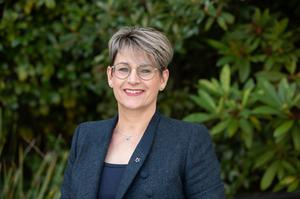As the dust settles on the recent change of government, issues such as the cost of living, the climate emergency, and economic recovery loom large for consideration and action by a new administration. So too, Tasmania’s budget seeks to address increasing pressures on household finances, and to support the community to extend opportunities for inclusion and security, through improved workforce participation.
However, while governments at all levels can make policy decisions aimed at delivering on their promises for change and improvement across various aspects of our economies, a fundamental shift in leadership is imperative.
While COVID-19 has delivered an opportunity to review our relationship with work, our community and our environment, many of the challenges borne of the pandemic were on the agenda well before this. Having been relegated to a ‘too hard’ basket pre-COVID-19, matters such as labour shortages, skills wastage and wellbeing at work have come clearly to the fore.
Innovation and productivity challenges have been cemented onto the agendas of government and business alike. Inclusion across our communities, not just the workplace, has been highlighted. The importance of amplifying diverse voices will be key to generating belonging, not just diversity statistics.
So, what has this got to do with leadership? The 2022 election highlighted that ‘bulldozing’ approaches – which locked out alternative voices with a lack of compassion and an absence of openness to more expansive views – does not deliver in a world much changed.
‘Great Man’ styles of leadership must make way for a more collaborative and distributed mode of operation. Traditional notions of aggressive decisiveness and unilateralism must shift to encourage alternative behaviours and a more generous understanding of the world and our place in it.
In short, leaders across public, private and social enterprise organisations are being rightly provoked to critique traditional approaches and realise new ways of operating. This shift does not happen by osmosis or by accident. It is learned. It is open to trial and error. It is beholden to fail fast, learn fast, act fast methods. The activities and behaviours that characterise modern leadership and management come from exploring the connection between strategy, goals, and human endeavour, with a heavy emphasis on ‘human’.

Dr Terri Simpkin, Associate Professor of Management and MBA Director at the University of Tasmania.
The ’new business as usual,’ including making the new budget work for us all in a challenging economic landscape, demands a paradigm shift, not simply ‘leadership as usual.’ In terms of leadership, doing things differently will not be as effective as doing different things, nor as valuable as listening to different voices.
The University of Tasmania’s newly developed Master of Business Administration (MBA) courses explore current issues like changing ideas of leadership, inclusion and embedded bias. Critiquing current affairs through multiple lenses tests both theory and practice to afford students a more critical view of how we operate in a revised ‘new business as usual'.
Find out more about our Business Administration courses.


